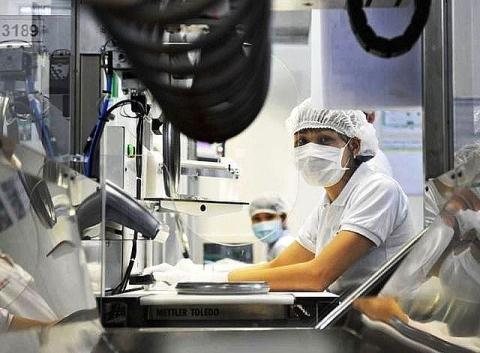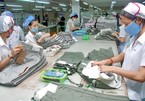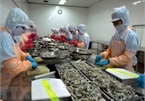As the US has imposed high tariffs on imports from China, large technology firms have been trying to relocate their production bases to Vietnam.

Local newspapers reported that Foxconn has paid $16.5 million to Fuhua for the right to use 250,000 square meters of land in an industrial zone in Bac Giang, showing the technology firm’s intention of making long-term investment in Vietnam.
While many people are excited about the arrival of technology giants in Vietnam, economists are cautious talking about the investments, saying that Vietnam has not prepared well to receive them.
| While many people are excited about the arrival of technology giants in Vietnam, economists are cautious talking about the investments, saying that Vietnam has not prepared well to receive them. |
Nguyen Van Nam, former director of the Trade Research Institute, said Vietnamese enterprises find it difficult to compete with Chinese ones in technology, machine, equipment and capability.
Vietnam is behind China, itd technology is outdated and state management policies remain unclear. The State offers preferences to some business fields, but these have not helped businesses develop. Other business fields are meeting obstacles, according to surveys on the business environment.
In the competition, Vietnam needs to change itself to rise up. Some economists think that Vietnam needs to take proactive shortcuts like Korea, Singapore and Thailand did.
“There are many good ideas, but the policies remain unclear. During the renovation process, a lot of new policies were set, but they were just open enough to untie businesses, not enough for them to take off,” he commented.
Nam showed his concern about the weakness of Vietnamese enterprises amid the arrival of foreign technology giants.
If Vietnamese cannot find creative ways to develop, foreign investors will have to use foreign companies in supporting industries.
A research work by VCCI points out that foreign invested enterprises (FIEs) in Vietnam tend to be smaller in capital investment and labor scale. There are many small FIEs which come to Vietnam just to work as satellites for bigger FIEs and supply accessories to them. Such enterprises may overwhelm Vietnamese suppliers, and hinder the domestic private economic sector to join the global value chain.
“Samsung and Intel have arrived in Vietnam, but our enterprises still cannot make components and accessories to satisfy their requirements,” Nam said.
An analyst commented that Vietnam is busy signing FTAs, but is paying less attention to preparing domestic enterprises for the FTAs.
“Please don’t forget that the preferences we can obtain from FTAs will become useless if Vietnamese enterprises are incapable of enjoying the preferences,” he said.
Linh Ha

Vietnam fails to attract FDI in hi-tech agriculture
Vietnam ranks among the top 3 rice and coffee exporters in the world, and its vegetable and fruit exports are expected to reach $10 billion prior to 2025.

More than 22 billion USD in FDI poured into Mekong Delta
As many as 1,609 foreign direct investment (FDI) projects, worth 22.3 billion USD, landed the Mekong Delta in the first half of 2019, reported the Vietnam Government Portal (VGP).
 If Vietnam cannot prepare well to receive foreign technology conglomerates, they will come to Vietnam but will bring satellite businesses, ending up offering no jobs for Vietnamese.
If Vietnam cannot prepare well to receive foreign technology conglomerates, they will come to Vietnam but will bring satellite businesses, ending up offering no jobs for Vietnamese.